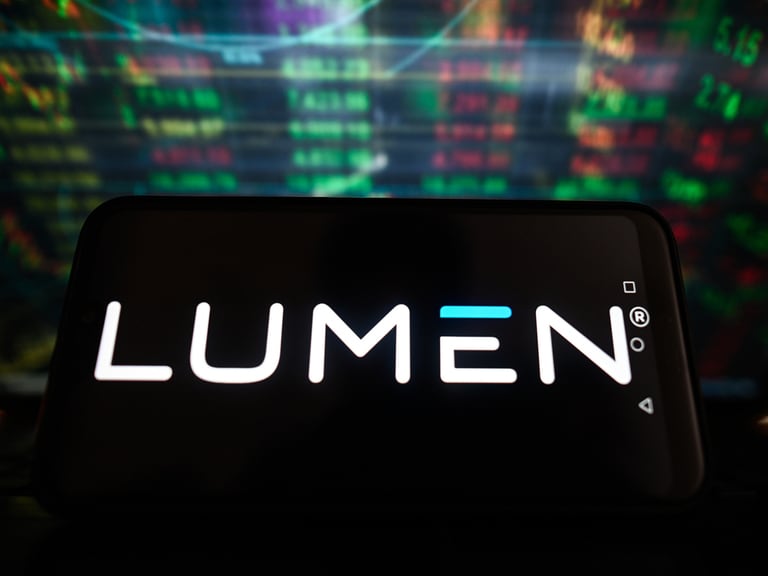The Rivian share price has had a challenging three years following its 2021 debut. In the past 12 months alone, it has fallen 27.1%. However, RIVN stock has shown a remarkable recovery in recent months, driven by a joint venture that points to the future of EV makers: automobile software leadership.
Rivian [RIVN] is a manufacturer of electric vehicles (EVs) based in Irvine, California.
It sells two retail models: the R1T electric truck and the R1S electric SUV, with the R2 midsize SUV series expected in 2026. It also builds the Rivian Commercial Van for enterprise companies including Amazon [AMZN], enabling them to electrify their commercial fleets.
This stock spotlight will explore RIVN stock in light of the company’s fundamental financial performance.
It will also compare it to two close rivals: Tesla [TSLA] and Lucid Motors [LCID]. All three companies face an uncertain future. Since 2022, elevated global inflation and heightened interest rates have been headwinds for a sector that was, until then, picking up steam.
Combined with competition from Chinese producers, these factors mean America’s EV makers have been under intense pressure to reduce costs in domestic and international markets.
VW JV Boosts RIVN Stock
Rivian offers reasons to be cheerful despite these headwinds.
Firstly, its cars have been well received: in 2023, JD Power named the R1T the ‘Best Ownership Experience’ among all EVs.
Given the divisive nature of Tesla CEO Elon Musk, Rivian has also, according to a recent report by Bloomberg, become an alternative for Musk detractors seeking to spend big on upmarket EVs.
However, Rivian also has its share of challenges. The company’s share price closed at $18.11 on 12 July, indicating a 331% drop from its IPO price of $78 per share in November 2021. Though up 89.5% across the last three months, shares are down 30.3% over the past 12.
The sudden jolt of positivity in the Rivian share price over the recent term could be due to an announcement on 25 July of a joint venture between Rivian and Volkswagen [VWAGY].
This will see the German auto giant invest an initial $1bn into Rivian to create next-generation software-defined vehicle platforms for use in both companies’ EVs. There is an additional $4bn in planned investment, taking the potential total up to $5bn.
The deal underscores a potential growth area for EV makers — one which has also been highlighted by Tesla bulls. Unlike traditional car companies, EV makers are not solely in the business of building and delivering cars: they are pioneers of software critical for building cars in an age of over-the-air updates and self-driving technology.
Ready to invest in Rivian? Download the OPTO app today.
The Revenue Race: Rivian, Tesla, Lucid
In fiscal year 2023, Rivian posted revenue of $4.4bn, a 159% increase on the previous year. Total pre-tax losses fell from $6.75bn to $5.7bn, amounting to losses of $4.88 per share, an improvement on losses per share of $6.34 in 2022.
In Q1 2024, Rivian grew revenue by 81.5% year-over-year, from $661m to $1.2bn. Losses per share for the quarter were $1.25, beating analyst expectations of $1.59 losses per share, according to analysts polled by Refinitiv.
Analysts do not expect Rivian to post a profitable year any time soon. According to FactSet, analysts forecast shrinking losses through 2027.
Rivian’s best-known competitor is Tesla. The Austin-based company’s Cybertruck brings the ‘magnificent seven’ stock into closer competition with Rivian, particularly its R1T pickup truck. Another US-based EV specialist is Lucid Motors, which is on a similar scale in terms of market cap to Rivian.
| RIVN Stock | TSLA Stock | LCID Stock | |
| Market Cap | $17.46bn | $842.57bn | $9.04bn |
| P/S Ratio | 3.49 | 9.14 | 15.15 |
| Projected Sales Growth (2024) | 8.9% | 2% | 35.3% |
| Projected Sales Growth (2025) | 36.4% | 17.4% | 135.2% |
Rivian, across these metrics, sits between Lucid and Tesla, whilst being the cheapest stock relative to its recent sales. Its sales are expected to grow faster than those of Tesla, but not as quickly as Lucid’s.
RIVN Stock: The Investment Case
The Bull Case for Rivian
The bull case for Rivian has two important pillars: expected revenue growth and a reasonably cheap share price compared to recent sales.
While it isn’t expected to grow its revenue as quickly as Lucid, investors get a significant discount on Rivian stock for this; Lucid’s stock is more than three times as expensive, given the revenue it has already generated.
The analyst community also has a bullish stance on Rivian compared to its competitors. The median forecasts by LSEG analysts for Tesla and Lucid envisage the share prices falling over the next 12 months, by 19.4% and 29.4% respectively, as of 15 July. Rivian’s is also expected to fall over the same period, but only by 6.1%.
Bear Case for Rivian
When looking beyond revenue, there is a strong bear case to make against Rivian stock.
Like Lucid, Rivian has never posted an annual profit, and isn’t expected to in the near future. This is one obvious reason why investors might instead opt for Tesla, despite its low expected revenue growth. Tesla is already a profitable business; FactSet analysts expect the EV maker to grow its earnings per share to $4.60 by 2027.
While both Rivian and Lucid are loss-making, Rivian is more so. Between 2024 and 2027, FactSet analysts expect Rivian to reduce its losses per share from $4.22 to $1.98. Over the same period, analysts expect Lucid to go from losing $1.08 per share to being on the cusp of profitability at a $0.32 per-share annual loss.
There is also a macro headwind that all three stocks face: the prospect of a Donald Trump presidency beginning in 2025. Should the former president win November’s election, he has previously indicated that he will make life hard for the EV industry, going so far as suggesting that he would impose a “100 percent tariff” on EVs coming from Mexico.
“You’re not going to be able to sell those cars,” he said in a March rally.
Conclusion — Should You Steer Towards Rivian Stock?
This could be part of the underlying reason why analysts are so downbeat on the prospects for US EV makers. The industry is already facing a combination of challenges, which could be on the verge of being exacerbated by a rapid shift in governmental support.
However, the Volkswagen joint venture shows that there is potentially more to Rivian than merely selling cars. Even if the EV market in the US fails to accelerate, Rivian shows signs of being a leader in the world of software-defined vehicles, which could dominate the future of the automotive industry, regardless of the pace of EV adoption.
As always, thorough independent research is necessary before taking any investment decision, but there is enough about Rivian’s stock to suggest that the research itself could be worthwhile.
Disclaimer Past performance is not a reliable indicator of future results.
CMC Markets is an execution-only service provider. The material (whether or not it states any opinions) is for general information purposes only, and does not take into account your personal circumstances or objectives. Nothing in this material is (or should be considered to be) financial, investment or other advice on which reliance should be placed. No opinion given in the material constitutes a recommendation by CMC Markets or the author that any particular investment, security, transaction or investment strategy is suitable for any specific person.
The material has not been prepared in accordance with legal requirements designed to promote the independence of investment research. Although we are not specifically prevented from dealing before providing this material, we do not seek to take advantage of the material prior to its dissemination.
CMC Markets does not endorse or offer opinion on the trading strategies used by the author. Their trading strategies do not guarantee any return and CMC Markets shall not be held responsible for any loss that you may incur, either directly or indirectly, arising from any investment based on any information contained herein.
*Tax treatment depends on individual circumstances and can change or may differ in a jurisdiction other than the UK.
Continue reading for FREE
- Includes free newsletter updates, unsubscribe anytime. Privacy policy





